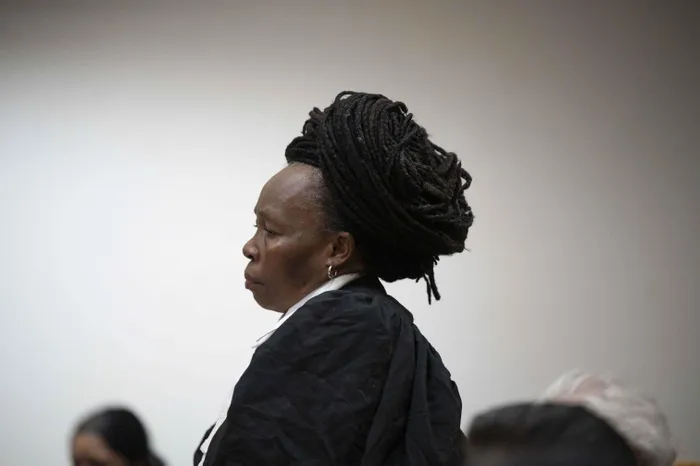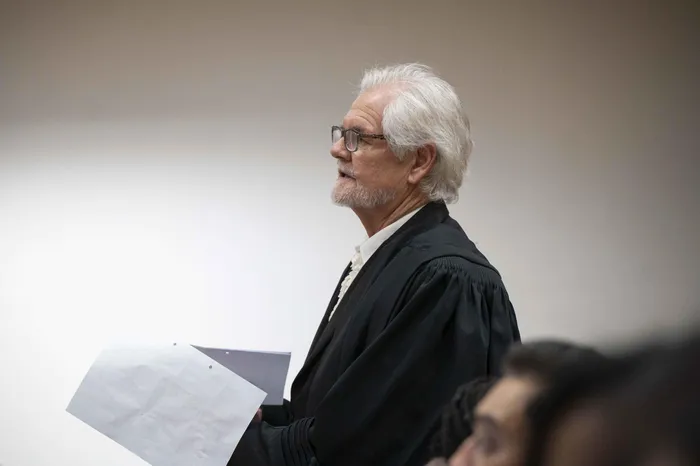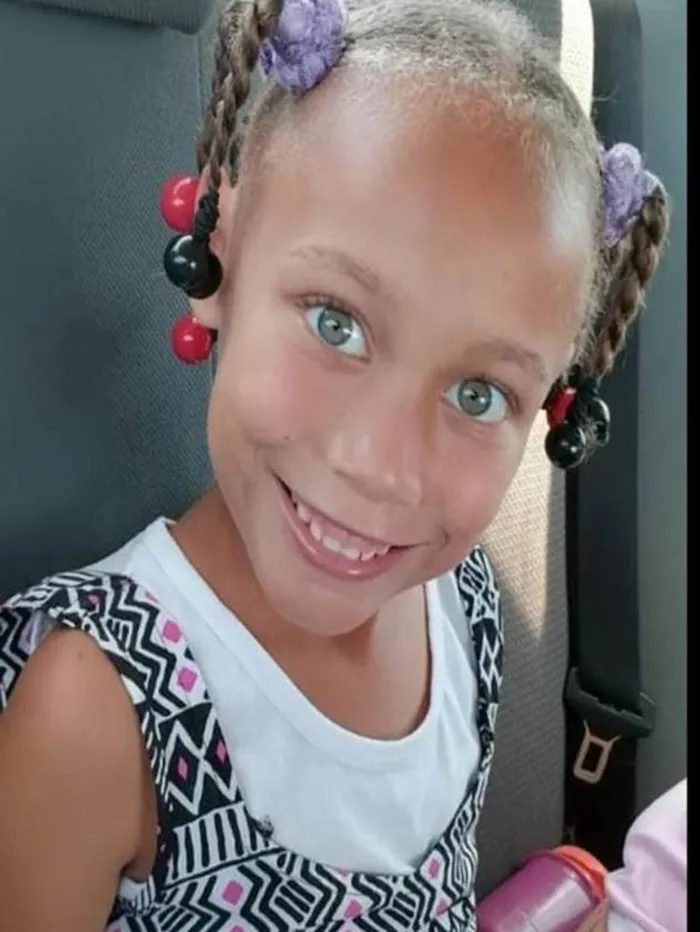Joshlin Smith | Defence counsel continues arguing to appeal their clients’ sentencing

Nobahle Mkabayi continues her argument in the Western Cape High Court on Wednesday.
Image: Armand Hough/Independent Newspapers
Defence counsel are expected to conclude their application to appeal the sentences of their clients in the disappearance of Joshlin Smith in the Western Cape High Court on Wednesday.
Joshlin’s mother, Kelly Smith, her boyfriend, Jacquen ‘Boeta’ Appollis, and Steveno van Rhyn were sentenced on May 29, and are currently serving life plus 10 years for trafficking in persons and kidnapping.
On Tuesday, Boeta’s lawyer, Fannie Harmse, argued that certain statements had been overlooked by presiding officer Judge Nathan Erasmus.
He suggested that if the court had fully considered them, more accused should have been tried, including Phumza ‘Makalima’ Sigaqa.

Fannie Harmse, Jacquen 'Boeta' Appollis' lawyer in the Western Cape High Court.
Image: Armand Hough/Independent Newspapers
Sigaqa was initially arrested with the group
Harmse further testified that the Section 204 witness in the case, former accused, Laurentia Lombaard testified that Boeta had wanted nothing to do with the plot in selling Joshlin.
Lombaard previously testified how Kelly received a call and spoke English during it, thereafter she told Boeta how someone ‘wanted Joshlin’, but he was not willing to listen at the time.
Nobahle Mkabayi, representing Steveno van Rhyn, argued that her client’s conviction should be overturned on grounds of procedural irregularities, unfair trial, and the use of a coerced confession.

Joshlin Smith has been missing since February 19, 2024.
Image: SAPS
She further argued that before the confession interview began, officers were present but never explained her client’s rights, including the right to remain silent, the right to legal representation, and the right against self-incrimination.
Judge Erasmus asked where that evidence was in the main trial. Mkabayi said it had been given during the trial-within-a-trial and “was not erased”.
She accused the court of failing to make an explicit ruling on the admissibility of the confession after the trial-within-a-trial, stating: “The court was silent on that point. I counted more than 37 interferences by the court during proceedings. The confession, the statement taken from an injured person, cannot be considered voluntary. It was improperly obtained, and suffocation was used.”
She continues her arguments.
robin.francke@iol.co.za
IOL